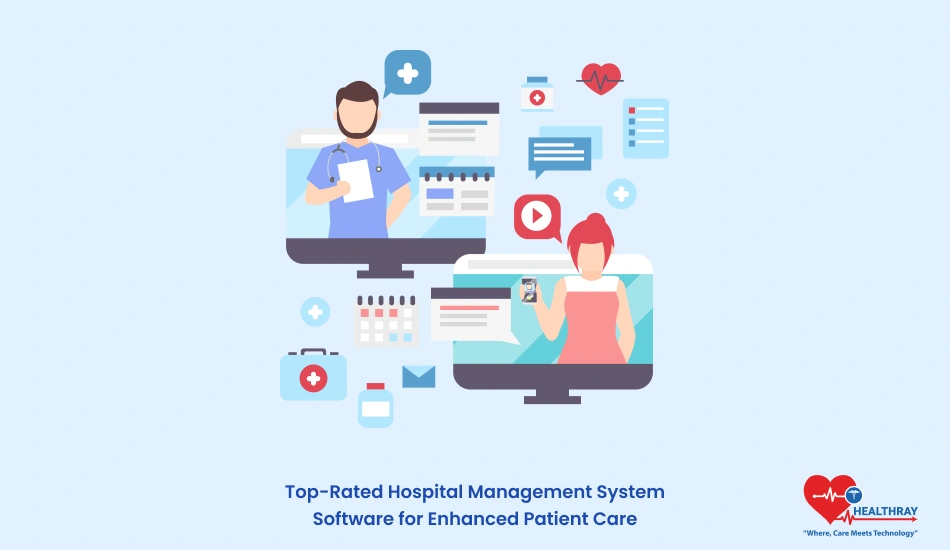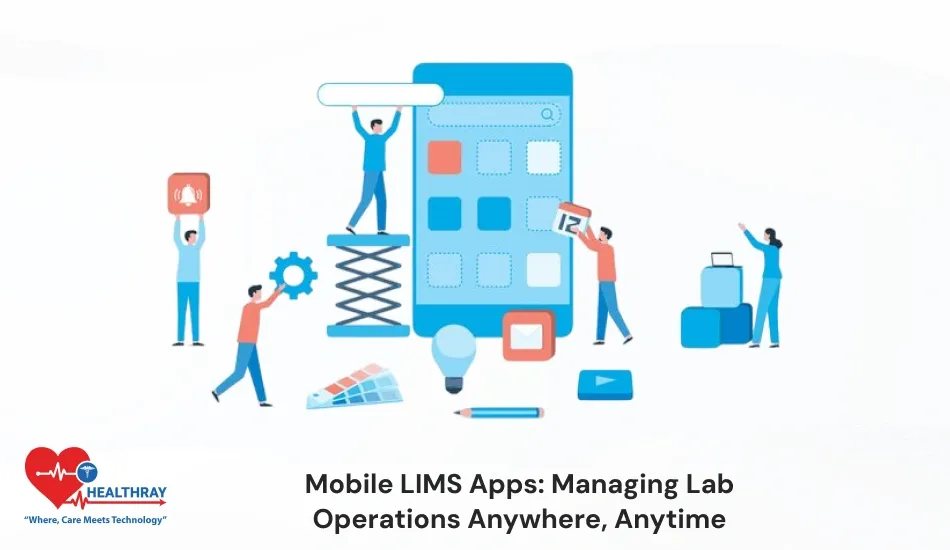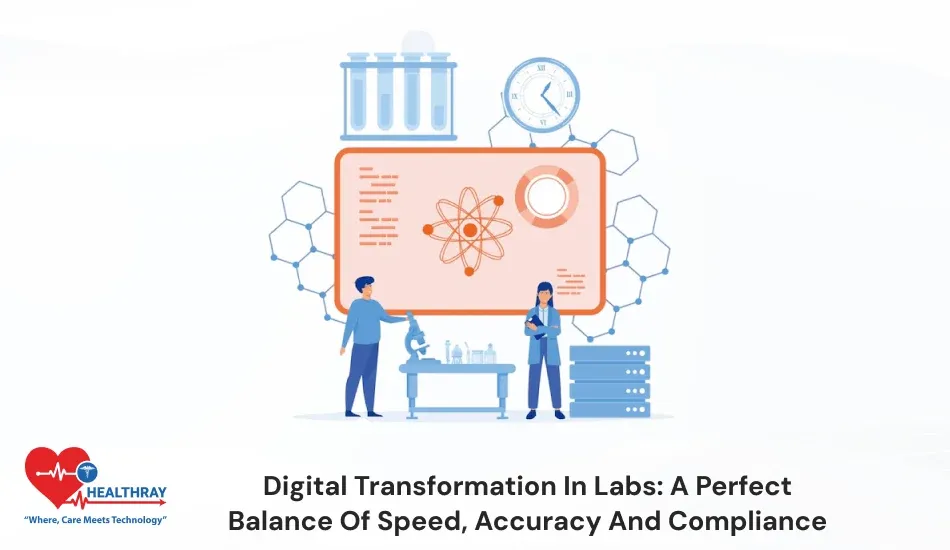Introduction: Why Hospital Management Systems Make a Difference to Patient Care
It is not only an expert medical skill when the door opens for a patient in the hospital, but it is all about smooth experience. It is more than a skilled practitioner and the latest high-tech equipment to the providers of health care. This also includes efficient administration, swift access to patient information, and interdepartmental clear communication. And it is here where a well-designed Hospital Management System can make the difference.
A well-designed HMS streamlines workflow, but the systems are key to the care of the patients themselves. They automate tasks in scheduling, billing, and managing patient records thereby reducing errors while streamlining services while keeping all patient information secure. High-rated Hospital Management Software is one of the very essential tools of the world of today where a patient demands to get faster service with greater transparency to deliver good quality care.
This article will take a few of the best-of-the-line hospital management systems that were developed up to this point and see how it might contribute towards improvement in a patient’s experience. Be it secure data management, scheduling or billing, it has everything one might need as big or as small as that hospital is.
Characteristics of a Hospital Management System

The right hospital management system would reflect, with a closer look at its core features that would make the day-to-day operations smoother and improve the care for the patients. So here are the core functionalities which the hospitals need to consider when choosing an HMS :
Patient Data Management
A great HMS possesses the great capacity of managing the data of a patient, thus making it easier and more accurate for doctors and staff to find the record of any patient. It includes EMRs, the computerized version that deals with as well as provides access to the history of the patient’s diseases and plans for treatment. By using EMRs, the doctors will possess the previous notes and be familiar with their past experiences about treatment and deliver far more personalized care without waiting which comes with a traditional record.
Scheduling an appointment and automated workflow
Proper scheduling is another reason behind the reduction of waiting time and frustration level of patients. In-built HMS software scheduling facilities help to organize appointments and track staff availability in order to avoid overbooking. This process streamlines the workflow concerned with the check-ins of patients, directs the patient to the concerned department, and notifies all the staff members about real-time information, which reduces the waiting time of the patient and makes it more systematic.
Hospital billing:
Advanced associated with insurance plan, copays, and percent coverage HMSs can automate to bill on advances cuts down through increased transparency, for revenue cycle managed at higher levels by the hospitals. Denials’ reduction errors usually occurs by automated handling systems. Hence, it most often has smoothen handling with high prospects for cut-back denials within hospitals.
Data Security and compliance
No data security feature is compromised in a hospital management system. Patient information needs to be secured so that confidentiality is maintained under any privacy regulation, including HIPAA, GDPR, etc. In theory, the HMS must provide encryption, access control, and logs for keeping information integrity as correctly aligned with HIPAA and GDPR. As long as there are protection systems in place, it will be quite impossible for a hospital to endanger its patient through breaches in the data, a step that otherwise would have denied the hospital any more trust .
Interoperability and Integration Capacities
An HMS which interacts with other applications including EHRs, pharmacy management and lab systems, will make the whole setting of a hospital much more integrated and efficient. In this context, interoperability allows that patient data be sent to departments. Such an HMS Software ensures the chance of humans erring at entry time is minimized. The HMS, once built, and a hospital technology being in place, its advantage is such that it coexists fairly well with any other already there hospital systems in place because renovation of any such system is not required.
Scalability and Customization
Thus, hospitals are always evolving and have to be adapted to. Scalability and customization make the system able to evolve to meet new demands like increasing the number of patient records, including modules for telehealth, integration of new devices, etc. A scalable HMS will make sure that a hospital will never grow out of its software. Customization allows for personalizing features to satisfy very particular needs-from small clinics to multi-location facilities.
These are some of the core features that form a good system in any hospital. Such a system would be in a better position to supply essential equipment that hospitals would require to supply organized, patient-centered care.
Best Hospital Management Software Solutions for 2024

Up to date, more defined hospital management software has come in to address the specific needs within the health care facility. Among these are the following top-rated ones and their respective areas of strengths as follows:
1. Healthray Technologies – High integration and engagements with the patients
Healthray Technologies will fit very well and offers all-inclusive patient engagement. It could offer administrative jobs like scheduling, billing, and enhanced EHR management. As gdesigned for enhanced interdepartmental communication, AthenaHealth is much more oriented towards care coordination. The application provides patients the freedom over their health records, appointment management, and even providers’ interaction through a patient portal that makes life way much more convenient and transparent.
Benefits :
Built-in tight integration with most of the already available EHR systems.
Patient-centered health record management portal.
Optimized interdepartmental communication.
Cons:
It might be a little costlier for small facilities.
It might be a little challenging to implement and consumes some more time in training the staff.
2. Bigscal Technologies – Best for Patient Documentation and Reporting
Bigscal Technologies caters to the documentation and reporting of patient data, so it is a good fit. It suits those hospitals who believe in putting a focus on the overall records of the patients. Its systems apply to the appointment, billing, and regulatory compliances but, especially, on regulatory requirements. That ensures this feature-rich platform puts all the tools in the hands of healthcare providers to smooth out the course of patient management and, therefore, outcomes.
Pros
Designed for full documentations and compliance.
Comprehensive reporting to aid in decision-making
Smooth integration with each other system in a hospital.
Cons
Not very customizable for some workflows
New users will have issues with easy learning.
3. EMR Software. AI – Best for Revenue Cycle Management
EMR Software. AI is a company that specializes in RCM. Their aim is to make billing and payment as uncomplicated as possible and as smooth as it could go. Through this, they have claims management, patient eligibility verification, analytics, and therefore enable the offering of the most uncomplicated way for the finance-related issues to healthcare providers. Waystar Platform, though with better performance in finances and having efficiency in billing at fewer claims being rejected and even fewer delays, it makes speed possible with turnaround in their payments
Advantages
- Revenue management tool kit with minimal billing errors.
- Better analytics for finance decision-making
- Claims support with eligibility verification in effective
Disadvantages
- The chief feature of revenue management but sometimes fails to fully incorporate all the characteristic features of being used as a hospital management.
- Personalizations that may be more towards the integration of the software presented with the existing systems
The ways through which Hospital Management Software improves Patient Care

This not only makes the task of worklight on the side of the hospital staff but directly influences the patient as well. Here’s how HMS will ease the process for the patients so they can gain good health output and have an effortless journey in healthcare.
Exposing to the real-time information of the patient
At this moment, instead of time information, these doctors and other service providers have digital records. A doctor is not looking for paper records and partially written information, but he is reading all his patient’s history regarding health issues, test reports, medicines provided, and the kind of treatment plan for him, which reduces errors as well, and medicines are administered to a human individual more because the doctor has every fact that may help him develop a treatment program that best serves
Queue waiting time
Wait times have decreased because of the efficient conducting of the appointments process
Long queues are never pleasant-looking. It seems to have great influence on the perception of the patients during the visit. Advanced tool hospitals, with regard to the management systems regarding appointment scheduling, enable one to schedule for providers’ availability in relation to the patient loads. The check-in machines automate the removal of bottlenecks to get the patients into the facility where they can get treatment faster. This advancement in scheduling positively affects patients as they get their employees working more effectively.
Enhanced Patient Communication
The Hospital Management System Software patient portal allows easy access by the patients to their respective health providers. He would be able to see his record, test results, and even book an appointment from home and can also pose a follow-up question from his provider. This will ensure that the patients are well informed and thus more interested in their treatment, thereby increasing the treatment adherence and satisfaction for the hospital.
Data security for comfort of patients
Data breaches are the most harmful threats to the health sector.
Always, there has been a wish that information relating to patients should be kept confidential and safe. The current hospital information management systems encrypt the patient’s sensitive information and use access controls based on roles plus security auditing as ways of securing that same information meant for the secure protection process. This aspect of being privacy compliant makes the hospitals confident in them, which in turn increases the preparedness of the patients to share their personal information with their health services providers.
Co-ordinations of the departments is enhanced
Well, if there are hospital departments that work autonomously, there is no ready expectation that its patients will be free from delaying and mis-communications.
As an HMS ensures that all different departments of any hospital are going to be taken under one hood, meaning thus that all departmental communications enhance. For example, if a patient may need some laboratory tests or some imaging, then his or her record can be uploaded directly with such results to be viewed by the physician in charge. All this integration leads to quick diagnosis and less back-and-forth, which therefore means fast treatment and resultant good results.
Reduced Treatment and Billing Errors
Health care errors are very crucial. HMS automated all the procedures from data inputting, billing, and management of prescriptions so that it cuts down human mistakes. Automated scans and alerts provide appropriate treatments, results follow appropriately for patients while also diminishing monetary mistakes with few billing complaints so patients and other administrative personnel tend to have easier stay.
All these benefits show the fact that a good system in running a hospital is more than just administration of a process; it is necessary and extremely fundamental in the role that plays for improvement in patient care through waiting line reduction, safeguarding patients’ information, and effective communication leading to a better and reliable experience in health.
Conclusion:
Selecting an Appropriate HMS for Patient Care and Growth. The right choice of Hospital Management System is the first step toward betterment of the hospital in terms of quality patient care and overall efficiency. As the number of available solutions is rather high, all with their respective strengths, judging the needs of the hospital with the priorities for such a decision becomes all the more important. Be it only streamlining the schedules, better accuracy in billing, protecting patient information, or easier remote care-you name it. It all depends upon the ideal HMS for the job.
Nothing is just mere administrative work by automating. Instead, a robust HMS gives an overall impact to the patient experience, waiting time, communication, and even more accurate billing. The direct benefit it would give to the staff is shorter workflows, reduced errors, and burnout, but scalability is going to put facilities ahead of any evolution in the healthcare sector and with industry trends-from insights on AI to telemedicine capability.





